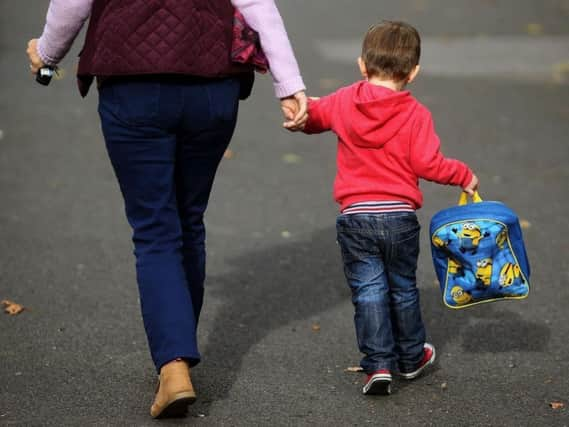‘Eradicating’ child poverty is a priority, says Gainsborough MP


This comes after your Standard revealed that thousands of children living in and around Gainsborough are living in poverty.
Sir Edward Leigh said while there are thousands of children in poverty the proportion of children in workless households is at a record low.
Advertisement
Hide AdAdvertisement
Hide AdWhich, he said, has taken “tens of thousands of children out of poverty”.
He said: “I can assure you that eradicating child poverty is an absolute priority.
“More than ever is being done to support children and I am delighted the latest figures show the proportion of children in workless households is at a record low.
“I am glad to say an impressive record of job creation has led to an all-time high of around nine in ten children now living in a home where at least one adult works, taking tens of thousands of children out of poverty.
Advertisement
Hide AdAdvertisement
Hide Ad“This means there are 665,000 fewer children living in workless households since 2010.”
Figures published by the End Child Poverty coalition revealed that across the town 24.2 per cent of children are deemed to be living in poverty, after housing costs are taking into consideration.
However, in some UK constituencies, as many as 42 per cent of children are growing up in poverty.
Sir Edward said: “The way we measured child poverty in the past, based on median income, was deeply flawed.
Advertisement
Hide AdAdvertisement
Hide Ad“New measures have been introduced to focus on the root causes of poverty.
“Chief among them being educational attainment and levels of work within a family.”
Sir Edward also praised Universal Credit for “strengthening incentives to work, by helping people keep more of what they earn”.
He said Universal Credit Work Allowances will rise by £1,000 from April this year, meaning 2.4 million households in the country will keep an extra £630 of their income each year.
Advertisement
Hide AdAdvertisement
Hide AdHe said: “The £650 increase to the personal allowance means that in 2019/20 a typical basic rate taxpayer will pay £1,205 less tax than in 2010/11.
“Crucially, the introduction of the National Living Wage has meant a pay rise for 2.4 million workers and those previously on the minimum wage have seen their pay increase by over £2,750 since April 2016.”